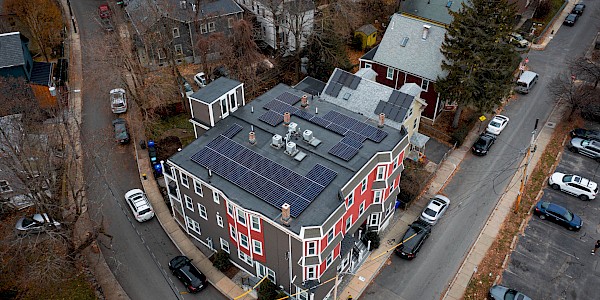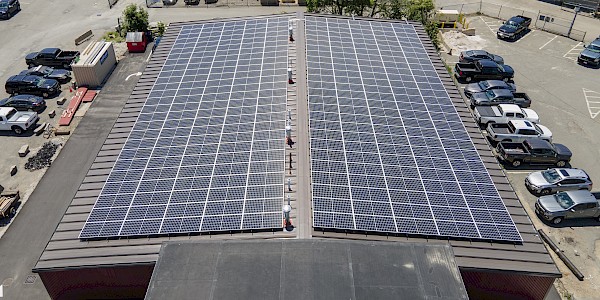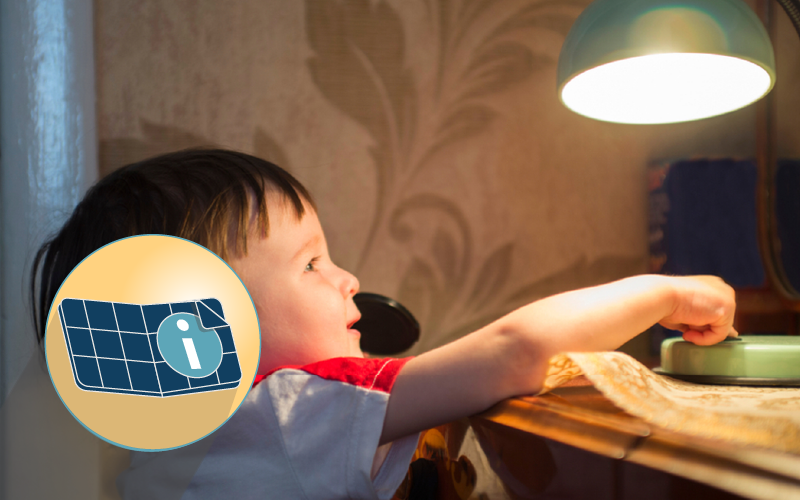How to Make Your Backup Power Last Longer During an Outage
Aug. 26, 2020
Backup power, like a solar backup battery, can protect you from the inconveniences and the dangers of losing power unexpectedly: a fridge full of rotten food, an uncomfortable home, and even medical considerations like sensitive medications or power-reliant medical equipment.
But if you have already installed a backup power system for your Massachusetts home or are looking into installing one in the future, you’re going to want to know how to get the most out of it! Just because you have backup power doesn’t mean you should turn on all your lights, do all the laundry that has been piling up and crank the air conditioner up while your neighbors without backup power are left in the dark.
Here are a few tips to help make your backup power last even longer.
Understanding Solar Plus Storage Backup Power
The first thing to make sure you understand is how a backup battery system works during an outage. Systems like Tesla Powerwall and the sonnenBatterie are charged by the solar panels on your roof or property, and they store surplus energy for use when those solar panels are not converting any of the sun’s rays into renewable electricity.
During an outage, your grid-tied solar panels will shut-off and your solar battery storage system will kick in to do all the heavy lifting unless you have an off-grid solar and storage system that can run independent of the grid. In order to make your backup power last longer, you will want to reduce the amount of energy you are using even though you still have power. Here are some tips to help save energy while utilizing your battery backup:
Only use the essentials
A great first step is to reduce your electrical usage down to the essentials. Appliances that take up a large amount of energy when used include the furnace, air conditioner, the clothes dryer, and dishwasher. Try hand-washing the dishes, turning the thermostat up in the summer and down in the winter, and waiting to do laundry until it is absolutely necessary.
Limit opening the fridge or freezer
Every time you open the fridge or the freezer, the heat from your living space rushes to fill the cool, insulated air inside your refrigerator. The more frequently you do this, the more energy your refrigerator will expend to keep your food cold. Keep trips to the refrigerator to a minimum, by grabbing everything you need to cook your meals in a single trip.
Don’t just turn off - unplug!
Have you ever heard of “energy vampires”? These energy sucking devices are deceptive, pulling energy from your outlet even when they are turned off. Common energy vampires include:
If you’re not using these devices, don’t just turn these devices off — unplug them! This reduces your energy usage and will also prevent a power surge (like when the power is restored) from damaging your devices.
Solar Battery Monitoring
Of course, energy usage and energy priorities will vary from home to home. So, the best way to optimize your sonnenBatterie or Tesla Powerwall home battery in a power outage is to keep an eye on your energy usage and battery capacity through an energy monitor. An energy monitoring device can give you real time energy data, from solar generation to actual energy usage, delivered right to your smartphone or tablet. This allows you to make the necessary adjustments to your energy usage habits, and stretch your stored solar energy for as long as possible.
Get the Most Out of Your Solar-Plus-Storage Capacity
If you are looking for more tips on how to maximize the renewable energy and resilience that your solar PV system and backup battery provide, get in touch with the team at Boston Solar.
As the number one Massachusetts based solar installer, we can help you save on your installation costs through the Federal Solar Tax Credit (and yes, solar batteries can still qualify for these tax savings!), and design a solar-plus-storage system from the ground up that is tailored to your specific energy needs.
Want to learn more about solar-plus-storage, and keeping your lights on during an outage? Schedule a free solar quote with Boston Solar today! Call 617-858-1645 or get in touch here.




